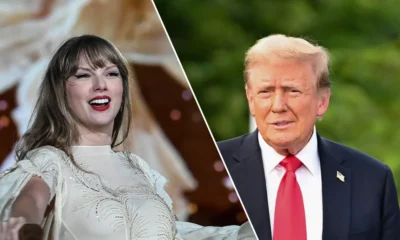Entertainment
The US Supreme Court rules on former President Donald Trump’s claim of immunity from prosecution for trying to overturn his 2020 election loss to Biden.

Judges in the US Supreme Court Thursday ruled on an appeal by former US President Donald Trump regarding his claimed immunity from prosecution over his efforts to overturn the result of the 2020 presidential election.
Trump appealed after lower courts rejected his bid for protection from a federal criminal case.
The Supreme Court judges rejected the lower courts’ ruling and sent the case back to them, but did not give a clear ruling on whether Trump was in fact immune from prosecution.
The decision will, however, mean that a trial before the November election is now highly unlikely.
What we know about the case
Trump had argued that US presidents are immune from prosecution for official acts they took in office and that the indictment he faces on charges of election interference must be dismissed.
The 78-year-old, who is in a tight rematch race against White House incumbent Joe Biden for the November 5 election, nominated three of the six conservatives on the nine-member court.
Conservative justices had previously voiced concern about presidents lacking any level of immunity.
While the Supreme Court has previously ruled that ex-presidents can’t be sued in civil cases for their actions in the Oval Office, it has never pronounced on criminal immunity.
Trump’s trial on the indictment by Special Counsel Jack Smith, in Washington, DC, may not happen before the November election, even if he is ruled not to be immune.
Trump faces indictments in four cases, in both federal and state courts. The other federal case, brought by the same special counsel, relates to allegedly mishandling classified documents,
One of the state cases is about alleged election interference in Georgia. The other concerns Trump’s role in a hush-money scheme involving a porn star, for which he has already been convicted of a felony and faces sentencing in July.
























